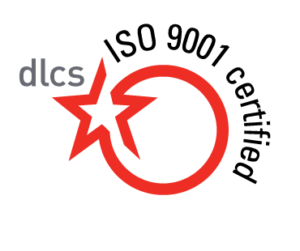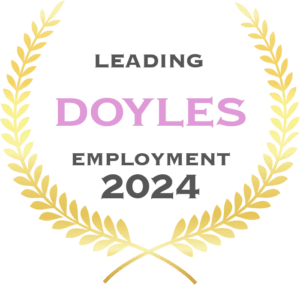
The health industry in Australia, boasting a workforce of over one million people, plays a pivotal role in the country’s overall development and well-being.
Navigating the intricacies of labour laws in this expansive sector can, however, be daunting, especially given the nuanced and complex nature of modern awards.
The Health Professionals and Support Services Award 2020 (MA000027) is one such instrument designed to regulate employment terms and conditions.
Unfortunately, employers often find themselves tangled in its complexities, failing to fully grasp their obligations, leading to unintentional non-compliance.
This comprehensive guide aims to decode the award, shedding light on the various requirements and guidelines employers need to meet.
Coverage: Who Does the Award Apply To
This modern award applies as both an industry and occupation award. This means it applies to employers across Australia in the health and allied services industry and their employees in numerous classifications under the award. It also applies to employers who are engaging a health professional, regardless of whether the employer is or is not in the health industry.
Coverage as an Industry Award
The award defines the health industry to include the delivery of:
- Medical services
- Health care services
- Dental services
- Pathology services
Employees who fall under these service delivery sectors include:
- Dieticians
- Pharmacists
- Dental hygienists and therapists
- Counsellors and psychologists
- Audiologists
- Speech pathologists
- Radiographers, sonographers and radiation therapists
- Occupational therapists (unless they work for the educational sector)
- Chiropractors and physiotherapists
- Podiatrists
Those who work in support services in the health industry are also governed by this award. Examples of support service employees include:
- General and administrative services employees such as receptionists, clerks, security offers, gardeners and cleaners
- Food service employees such as cooks and kitchen hands
- Technical and clinical employees such as dental assistants and laboratory assistants
In addition to these health professional employees, the Health Professionals and Support Services Award covers labour-hire businesses and their employees placed with an organisation.
The award, however, does not cover the following employees:
- Nurses (Nurses Award)
- Paramedics (Ambulance Award)
- Doctors, general practitioners and surgeons
Coverage as an Occupation Award
The award applies to employers who engage a health professional, regardless of whether the employer is or is not in the health industry.
Health professionals who are covered by this award include:
- Physiotherapists
- Chiropractors
- Dental hygienists
- Dietitians
- Pharmacists
- Podiatrists
When determining coverage, it is important to review the complete information in the Health Professionals and Support Services Award, including the classifications.
Employment Types
The Health Professionals and Support Services Award recognises three principal categories of employment:
| Full-Time Employees | Part-Time Employees | Casual Employees |
| Engaged to work 38 ordinary hours per week – usually with set hours each day | Specified part-time hours that are less than the full-time weekly average. | Hired on an hourly basis, with no firm commitment to continuing or indefinite work. |
Conditions for Employing a Part-Time or Casual Health Professional Employee
Part-time employees must receive the same entitlements as full-time employees based on their average weekly hours worked, i.e., pro-rata. Among these are benefits such as annual leave and personal leave.
Employees and employers must agree in writing on the days and times of the employee’s work schedule to avoid misunderstandings and ensure clarity. This agreement can be altered only by mutual consent, with changes documented in writing.
If you choose to hire health professionals or support services staff on a casual basis, the terms of their casual employment must include the following:
- At least 3 hours of pay per shift (or 2 hours for cleaners)
- A loading of 25% on top of their base rate of pay, compensating for the lack of benefits typically accorded to permanent employees, such as personal leave, annual leave, payment for absences on public holidays, redundancy pay and the provision of notice on termination of employment
Casual Employees Can Request to Convert Employment Type
As per the National Employment Standards, casual employees have the right to request conversion to full-time or part-time employment at any time after their 12 month anniversary, if they have worked a regular pattern of hours over at least the last 6-months.
Employers must consider these requests in good faith and respond in writing to an employee’s request within 21 days.
Unless there are sound business reasons, such as a predicted change in the employee’s working hours or business circumstances, quite often the employer must offer conversion. However, employers should carefully review each specific situation with reference to the requirements set out in the National Employment Standards.
Where an employer has reasonable grounds to refuse a request, they still need to discuss the request with the employee and provide written reasons for their refusal within 21 days of receipt of the employee’s request.
It is also worth noting that, upon receiving the conversion offer, the employee has the option to decline it.

Hours of Work
The ordinary hours of work for an employee under the award must not exceed 38 hours per week. According to the award, these hours can be averaged over a specified period of up to four weeks.
Span of Ordinary Hours for Day Workers
Day workers work within a fixed span of hours, as indicated below:
| Field | Monday to Friday | Saturday |
| Private Medical Imaging Practices (5-day and half-day practices) | 07:00 – 21:00 | 08:00 – 13:00 |
| Private Medical Imaging Practices (7-day practices) | 07:00 – 21:00 | 07:00 – 21:00 (including Sunday) |
| Private MedicalPrivate DentalPrivate PathologyPrivate PhysiotherapyPrivate ChiropracticPrivate Osteopathic | 07:00 – 21:00 | 08:00 – 16:30 |
What Rostering Arrangements are Available Under the Health Professionals Award?
Under the Health Professionals and Support Services Award, the following rules govern the rostering of ordinary work hours for full-time and part-time employees:
- A roster must be in place for each employee, illustrating their ordinary hours of work over a fortnightly period.
- The roster must be positioned in a location easily accessible to all relevant staff.
- This fortnightly roster must be posted at least two weeks in advance of the upcoming roster period commencing.
- Unless necessary for the proper functions of the hospital, facility or organisation, any alterations to the roster must be conveyed to impacted employees with a notice period of no less than seven days.
When Should Your Employees Take Their Breaks?
The award provides rules for both paid rest breaks and unpaid meal breaks.
Paid Rest Breaks
Employees are entitled to a paid rest break of 10 minutes for each four hours of work. This break isn’t to be taken in conjunction with another break or at the start or end of a shift.
Employers may determine when employees take these paid rest breaks.
Unpaid Meal Breaks
Employees are required to take an unpaid meal break of between 30 and 60 minutes after five hours of continuous work. The timing of the break can be varied by agreement between the employer and the majority of employees. An employee who works no more than 6 hours may elect not to take an unpaid meal break, provided the employer consents to this.

Minimum Pay for Employees in the Health Professional Industry
The Health Professionals and Support Services Award stipulates minimum wage rates for various roles, classifications, and experience levels. Employers must pay their employees at least the pay rates and entitlements specified in the award weekly or fortnightly, depending on the pay period cycle.
The Fair Work website has various tools and resources to help you calculate your staff’s wages.
Alternatively, you can access the pay guide summaries, which contain information about the minimum wages (pay rates), penalties, and allowances.
However, note that these pay rates are adjusted annually per the national minimum wage. Therefore, you must use the applicable pay guide summary when determining the applicable pay rate, and you must ensure you regularly check such rates to ensure you remain compliant.
Superannuation Guarantee
All employers must pay a superannuation guarantee on behalf of their employees. The current rate is 10.5% of an employee’s ordinary earnings for the 2022–23 financial year. However, this will increase each year by 0.5% until it stabilises at 12% in 2025.
What Allowances are Available under the Health Professionals and Support Services Award?
Eligible employees under the Health Professionals and Support Services Award receive additional pay, in the form of allowances, for specific work conditions and work-related skills, including:
| Allowance Type | Description |
| Heat allowance | This allowance is provided to employees who are required to work in conditions where the temperature exceeds 46 degrees. |
| Occasional interpreting allowance | This allowance is for employees who are occasionally called upon to use language skills other than English for interpreting purposes. It is paid on each occasion that they are required to perform interpreting duties. |
| On call allowance | Applies to employees when they are required to remain available for work beyond ordinary hours. |
| Nauseous work allowance | For employees engaged in tasks of a nauseous or repulsive nature as described in the award. |
| Uniform allowance | For employees required to wear specialised uniforms who are not supplied with such uniforms, compensating for their purchase or replacement. |
| Laundry allowance | This allowance is designed to cover the cost of maintaining and laundering the uniform. |
| Blood check allowance | If an employee is required to take blood tests due to being exposed to radiation, they will be reimbursed for the costs. |
| Damaged clothing allowance | Employees whose clothing is damaged at work through no fault of their own are entitled to receive an allowance to compensate for the damage. |
| Meal allowance | An employee who works more than one hour of overtime after their usual finishing time, is entitled to a meal allowance to cover the cost of a meal during their overtime. |
| Tool allowance | This allowance is provided to chefs and cooks who are required to supply their own tools for work. |
| Telephone allowance | An allowance for employees who are required to use their personal telephone for work-related purposes. This is paid as a refund of actual installation costs and rental charges upon production of receipts. |
| Transport allowance | If an employee is required to use their own vehicle for work-related travel, they are entitled to a per kilometre allowance to cover the costs. |
These allowances are generally adjusted annually. You can access the full allowance conditions in clause 23 of the Health Professionals and Support Services Award and the allowance rates in the relevant pay guide.
Higher Duties
Where you require a health support services employee to undertake duties of a higher classification, you must compensate them according to the number of hours they perform these duties.
If they only perform these higher duties for up to two hours, you simply compensate them for that time by paying them at the higher rate of pay that applies for working at the higher classification. However, if they work beyond the two hours, you must compensate them at the higher applicable award rate for the entire shift.
In circumstances where they are required to perform the duties of another employee at a higher classification under the award for 5 or more days, you must compensate them at the minimum rate for that higher classification for the entire period that they perform the other employee’s duties.

What Are Your Obligations When Staff Work Overtime?
Under the Health Professionals and Support Services Award, overtime entitlements for different categories of employees are as follows:
- Full-time Employees: They earn overtime if they work beyond their ordinary weekly hours or any shift longer than 10 hours.
- Part-time Employees: They earn overtime if they work more than their ordinary weekly hours, exceed 38 hours in a week, or work any shift longer than 10 hours.
- Casual Employees: They earn overtime if they work any shift longer than 10 hours, or work beyond 38 hours in a week or 76 hours in a fortnight.
Further, where employees miss out on their break between shifts, they are entitled to overtime.
The award stipulates different overtime rates for different categories of workers:
| Overtime Hours | Overtime rate for full and part-time employees | Overtime rate for casual employees (including casual loading) |
| First 2 hours (Monday – Friday) | 150% | 187.50% |
| After 2 hours (Monday – Friday) | 200% | 250% |
| Sunday – all day | 200% | 250% |
| Public holiday – all day | 250% | 312.5% |
Note: Overtime rates are in substitution for and not cumulative with shift work penalties and loadings.
Rest Period After Overtime
Upon working overtime, an employee must receive a break of 10 consecutive hours before starting work again. If the employer requests that the employee resume work without a 10-hour break, the overtime rates continue to apply until the employee is given a 10-hour break.
Are Employees Allowed to Take Time Off Instead of Receiving an Overtime Payment?
Yes, the Health Professionals Award permits an employer and employee to agree in writing that the employee can take time off in lieu of being paid for overtime. However, you must comply with certain requirements:
- An employee must receive the equivalent time off as the overtime pay they would have received if they had not been granted time off. For example, a full-time or part-time employee who works 2 hours of overtime is entitled to 3 hours off (i.e. 2 x 1.5).
- Both parties must agree to take the time off within six months of working the overtime. If the employee does not take the time off within six months, the employer must pay them for the overtime.
- If the employee requests it at any time, the employer must pay the employee for their overtime.
- The employer cannot pressure or unduly influence employees into taking time off instead of receiving overtime pay.
- The employer must pay overtime to the employee if the employee’s employment is terminated.
Penalty Rates and Shift Work
Penalty rates are an important aspect of the Health Professionals and Support Services Award. They apply when employees are rostered to work unsociable hours, such as on weekends and public holidays. The intention is to fairly compensate workers for the regular inconvenience of working such hours.
Different penalty rates apply depending on the time and day of work:
| Day Worked | Penalty Rate |
| Saturday | 150% |
| Sunday | 150% |
| Public Holidays | 250% |
Note: Remember to add the applicable 25% loading rate if the employee is a casual.
The following penalty rates apply to shiftworkers (being employees who are regularly rostered to work their ordinary hours outside the span of ordinary hours of work of a day worker):
| Shift | Penalty Rate |
| Shift ends between 18:00 and 08:00 | 115% |
| Shift starts between 18:00 and 06:00 | 115% |
Note: These shift work penalty rates do not apply to shift work performed by any employee on Saturday, Sunday, or public holidays, where the weekend penalty rates and public holiday rates that are set out in the table above apply.

What are the Annual Leave Provisions under the Health Professionals and Support Services Award?
The National Employment Standards (NES) prescribe the annual leave provisions for employees covered by the Health Professionals and Support Services Award.
Employers must pay their employees a 17.5% leave loading in addition to their annual leave entitlements.
What Alternative Annual Leave Arrangements Can an Employee Request?
- Leave in advance: An employee can take paid annual leave in advance if agreed upon in writing with the employer.
- Cashing out annual leave: Employees may be able to cash out some of their accrued annual leave as long as certain conditions are met and at least four weeks of accrued annual leave are retained.
- Excessive leave accruals: If an employee has accrued more than eight weeks of paid annual leave (or ten weeks for shift workers), they and their employer may agree to reduce the amount by taking some leave.
Key Takeaways:
Understanding and abiding by the Health Professionals and Support Services Award is vital for employers in the health and allied services industry and those who are covered by this award as an occupation award.
While this guide offers an in-depth overview of the award’s provisions, it may not cover all individual circumstances, since employment relationships and requirements can be complex.
For specific advice or more comprehensive information, it is always recommended to consult a legal professional or a trusted advisor well-versed in Australian employment law.
As a leading employment law firm, WilliamsonBarwick has extensive experience advising employers regarding their obligations under the Award. In addition to assisting you in understanding your legal obligations, our lawyers will also assist you in resolving any disputes that may arise.
Contact us today to discuss your needs and how we can assist you.











